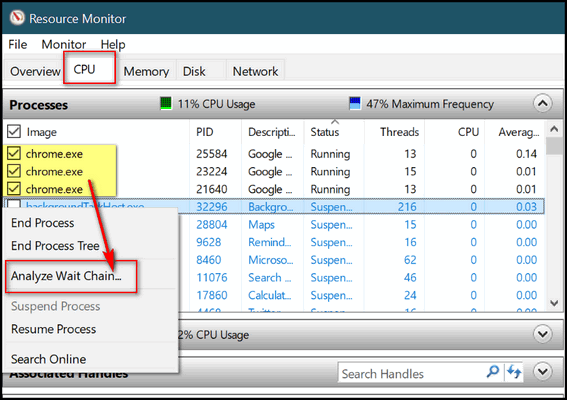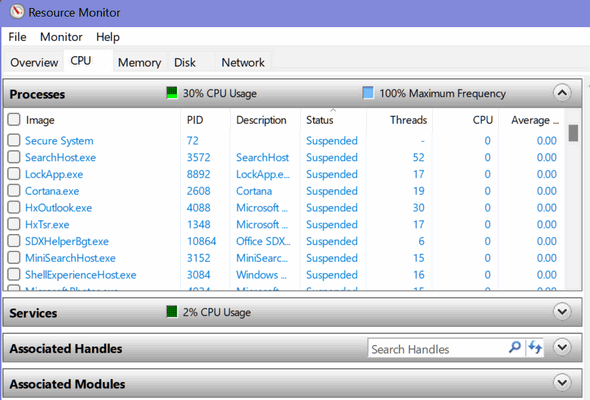The Next Time a Program is Not Responding Try This Trick to Avoid Losing Data
A tip for Windows 8.1, Windows 10 (all versions), and Windows 11
In earlier versions of Windows if a program froze (hung, locked-up) there was nothing you could do about it but kill the program using Task Manager/Processes/End Process. But Windows 7, 8, and Windows 10 users have at least a shot at un-freezing the program – plus you may get a nifty explanation of the problem too. And using this method to unlock or un-freeze a program will allow you to recover the program without losing any data.
Keep in mind this does not work all of the time…
But it does work some of the time and that’s much better than having no chance at all of saving your data. In earlier versions of Windows, you had no chance at all to unlock a frozen program and recover your data. And if you have been working on something, like a document, and the program you’re using becomes unresponsive, you’ll want to try this tip before killing the program in Task Manager or restarting your computer in frustration… and losing everything you were working on.
The next time an application stops responding, try this
Press & hold down the Windows Key and tap the “R” key to open a Run box. In the Run box type
RESMON
And press ENTER.
Click on the CPU tab (this tab should be the default) and find your frozen program which is easy since it will be highlighted in red. Right-click on the unresponsive program and choose “Analyze Wait Chain”.

If you see at least two processes in the list, the one that is furthest down is the one instance of the program that is not responding.
Check the box next to the hanging process (program), click “End Process”, and your frozen, locked-up program should come back to life. Remember this will not work all of the time, but it’s something you can try before giving up and killing the program… or restarting your computer. At least you’ll have a chance of saving whatever it was you were working on.
And this tip works in Windows 11 as well. Here’s a screenshot of the Resource Monitor (RESMON) in Windows 11.



if this works as it should, shouldn’t this simply close the program, thus losing your data? is there any difference between this and faithful ol’ ctrl alt delete that we’ve been using since 1990?
I don’t understand your comparing CTRL+ALT+DELETE to looking in Resmon and determining which one of multiple processes is not responding. It’s not the same and as stated in the article it does not work all the time.CTRL+ ALT+ DELETE in Windows 10 and Windows 11 brings up menu showing “Lock”, “Switch user”, “Sign out”, “Task Manager”, and “Cancel”.
damn bro, thanks. i was just working on a doc in word for tomorrow and didn’t get a chance to save. u saved my life.
same thing as endind task in task manager
No it isn’t.